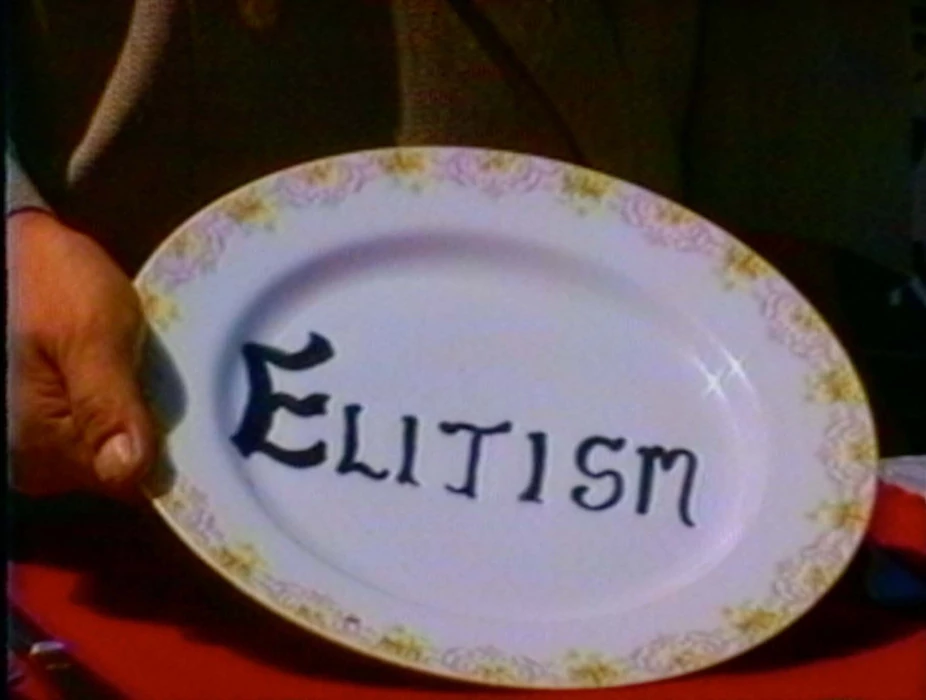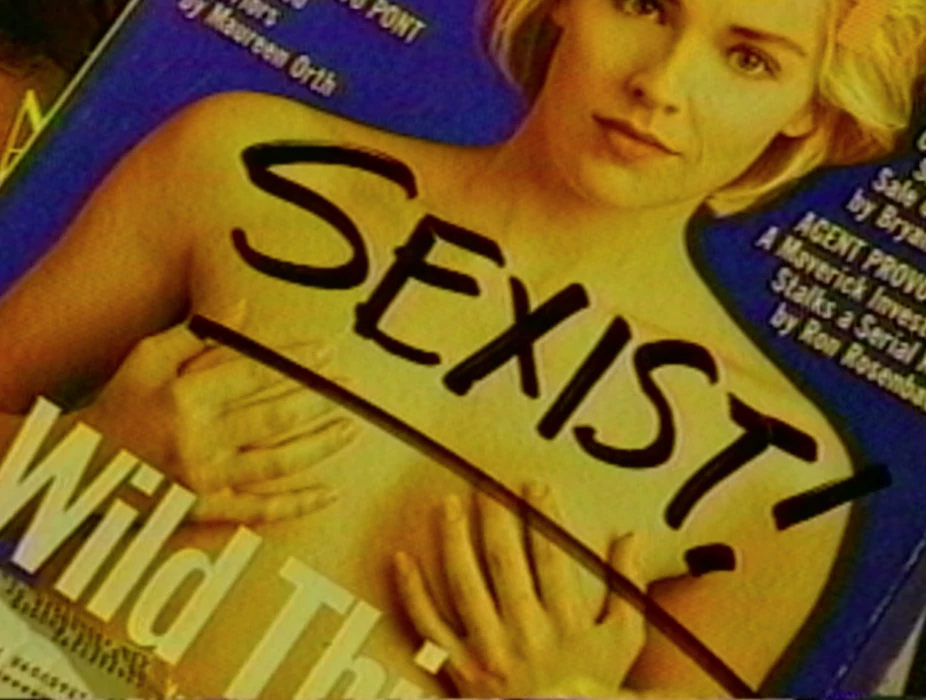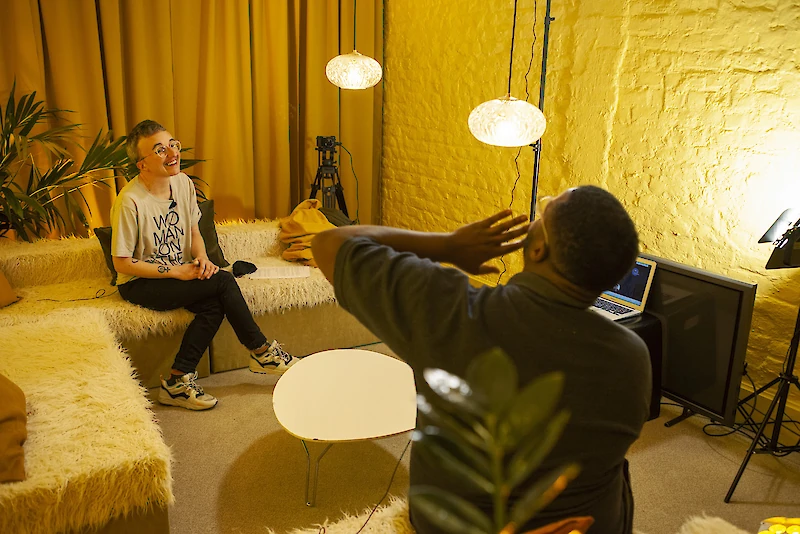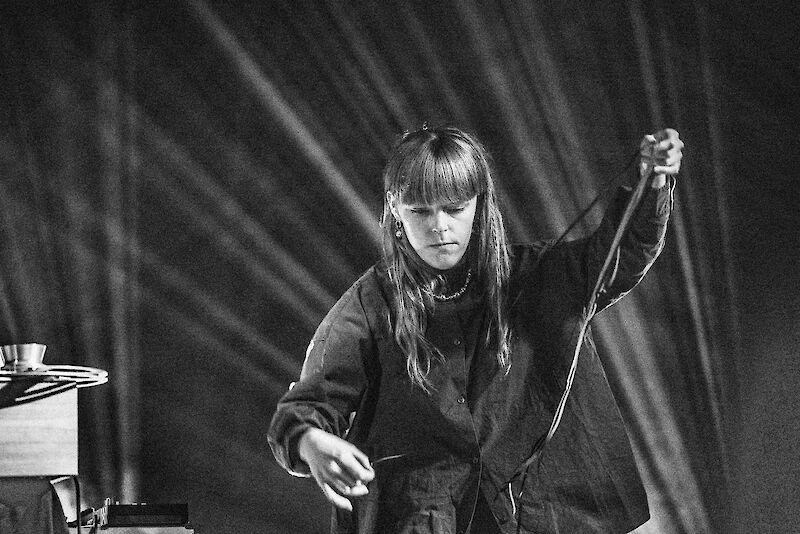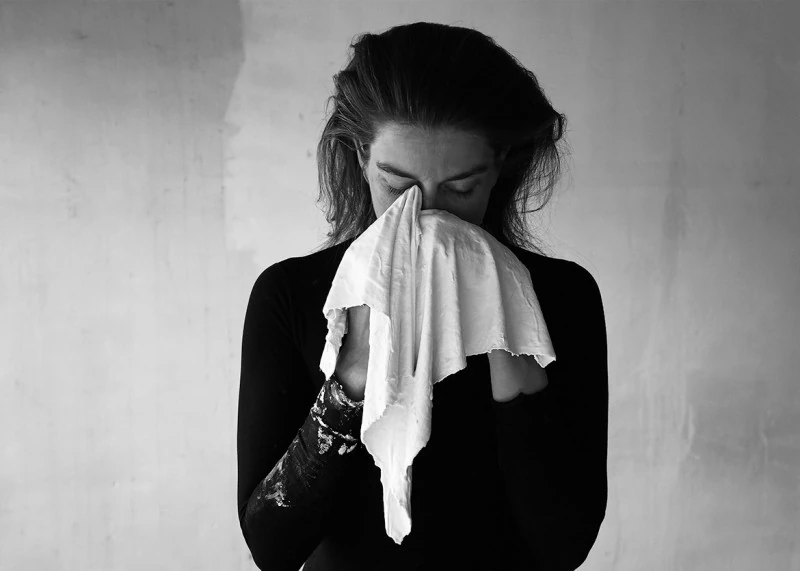A selection of films opening up a conversation about feminism, historiography and nonlinear temporalities of remembrance.
"The pattern is defined. Cut the line and chronology falls in a crumpled heap. I prefer a crumpled heap, history at my feet, not stretched above my head." – Lis Rhodes
Drawing on the exhibition No Master Territories (2022-2023) that she co-curated with Hila Peleg, Erika Balsom composes a programme of films that open up a conversation about feminism, historiography and nonlinear temporalities of remembrance.
Paper Tiger Television, SisterhoodTM: Hyping the Female Market (1993), video, 24 min., USA
Back in 1993, Paper Tiger Television, a grassroots video collective formed in 1981, was already questioning a type of feminism that has only grown in importance since: a neoliberal feminism centred on individual emancipation and consumer choice. SisterhoodTM exposes how the so-called 'lean in' wave of feminism promises the liberation of a select few, while relying on the exploitation of the many – especially poor and often racialised women who disproportionately work in care, cleaning and the cheap production of consumer goods. This video appropriates television genres and humorously analyses Nike advertisements to show how a movement, once committed to collective liberation, has been defused.
Sara Gómez, Mi aporte / My Contribution (1972), 35 mm, 33 min., Cuba
Sara Gómez started working at the Instituto Cubano del Arte e Industria Cinematográficos (ICAIC) in 1961, two years after its foundation. She directed twenty films there before she died in 1974 at the age of thirty-one. Mi aporte (literally "my contribution") began in 1969, commissioned by the Federación de Mujeres Cubanas, the organisation responsible for promoting women's rights after the revolution. But the film was suddenly censored upon completion. Paying close attention to the experiences of Afro-Cuban women, Gómez analyses how gender, race and class combine to shape post-revolutionary society. Through interviews and discussions (including a debate after the screening of a partial version of Mi aporte), she reveals the tension between the promises of the Cuban revolution and the daily reality of the women living there.
Han Ok-hee, Untitled 77-A (1977), 16 mm, 6 min., South Korea
Han Ok-hee was a founding member of the Kaidu Club, an experimental filmmaking group initiated in 1974 by alumnae of the Ewha Womans University in Seoul, where she had studied literature. The group, the first of its kind in South Korea, made independent short films and organized festivals and symposia, positioning themselves in distinct opposition to the commercialism and patriarchal thrust of mainstream cinema. Untitled 77-A is exemplary of this stance, rejecting existing industrial and representational norms to offer an experimental depiction of a woman laying claim to the role of filmmaker. Scissors feature as an important motif, operating both as metonymic signifier of the filmmaking process and as a highly charged instrument of violence that emblematizes a feminist refusal of the status quo.
Erika Balsom is reader in Film Studies at King’s College London. She is the author of four books, including After Uniqueness: A History of Film and Video Art in Circulation (Columbia University Press, 2017) and TEN SKIES (Fireflies Press, 2021, shortlisted for the Kraszna Krausz prize). Her criticism appears regularly in venues such as Artforum, Cinema Scope, e-flux, and 4Columns. With Hila Peleg, she is the co-curator of the exhibition No Master Territories: Feminist Worldmaking and the Moving Image (HKW Berlin, 2022) and co-editor of the books Feminist Worldmaking and the Moving Image (2022) and Documentary Across Disciplines (2016), both published by MIT Press. In 2018, she was awarded a Philip Leverhulme Prize and the Katherine Singer Kovacs essay award from the Society for Cinema and Media Studies.
check out the film programme by Monokino in KAAP (Ostend) on 27.10 >>>
check out the screening of Claudia von Alemann's film Blind Spot on SA 28.10 >>>
in collaboration with Monokino, Ostend
